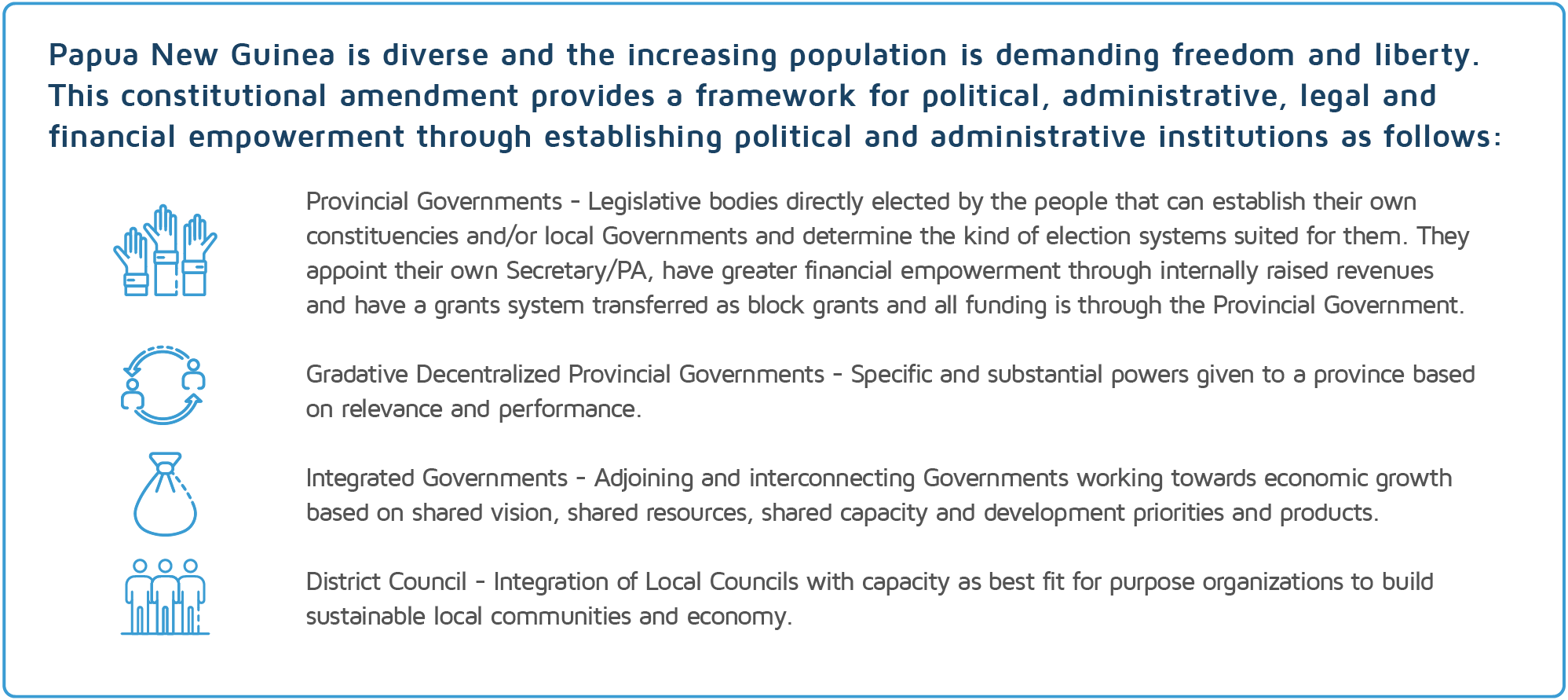The Papua New Guinea government is pushing for legislative reforms to give administrative and political powers to provincial governments in an effort to enable provinces to progress according to their development needs.
This reform is driven by popular demand from people who believe that provinces must now take ownership and decide on their own development agendas. Papua New Guinea (PNG) has 22 provinces which are situated in different geographic locations – on the mainland and islands in the seas that form part of the Pacific Ocean.
“Today I want to thank the Marape Steven Government (the ruling PNG Government of the day) for approving the constitutional amendment to the Organic Law on Provincial and Local Level Governments,” Kevin Isifu, the Chairman of PNG’s Constitutional Law Reform Commission (CLRC), announced last week.
“I want to inform the people of Papua New Guinea that the reform on decentralisation that started in 2013 which went through a process of consultation within the 22 provinces is now moving into law to give freedom and liberty to our people,” Mr. Isifu said.
The Constitutional and Law Reform Commission, along with the Department of Provincial Affairs, undertook an exhaustive consultation throughout the nation, gathering opinions and submissions from people and, at the end of 2014, produced a report that was represented to the national Government in May 2015 and accepted by parliament in June 2015. Following acceptance of the report, the law-making process then began in 2015 to implement the recommendations including the main one of a New Organic Law on Decentralisation.
The New Organic Law on Decentralisation provides for a cohesive policy and legal framework for the greater empowerment of provinces in the context of political, administrative, legal, and financial powers and, more importantly, to provide the capacity for each province to develop at its own pace which is why it is has been termed “gradative decentralisations”.
In July 2018, the PNG Government received the Certificate of Necessity required in order to progress with the Constitutional Amendment. The first provinces who signed inter Government Agreement with PNG’s Prime Minister in July 2018, were East New Britain, New Ireland, and Enga.
Later, in October 2018, the three provinces signed the Service Delivery Partnership Agreement with the National Government which enabled the process to begin in their provinces whilst, at the same time, legislative processes followed suit.
“I want to clearly state that the Constitutional Amendment is based on exhaustive consultation and discussions and, after assessing various options and models that we have come up with, is one that allows for each province to develop and progress at their own pace. That is what the people wanted in the consultation and that is what the Government has approved,” Mr. Isifu said.
Mr. Isifu expressed satisfaction that the PNG Government was happy with the level of consultation and integration of all interests and that this Constitutional Amendment is the right way to go.
“Also, unlike all other laws, this has gone through rigorous policy and administrative vetting processes and wide socialisation. As Chairman of CLRC, I have the duty of moving forward with the passage of the Constitutional Amendment and the drafting of the new Organic Law on Decentralisation,” Mr. Isifu concluded.
There are over 4000 funding opportunities for development projects in Papua New Guinea available on DevelopmentAid platform.


